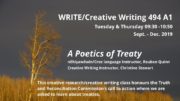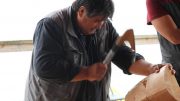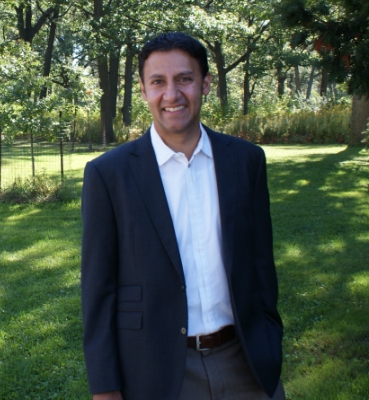(Calgary) – The Government of Canada is investing more than $1.5 million over two years in Indigenous languages in Calgary and the surrounding areas.
This funding, provided through the Aboriginal Languages Initiative (ALI), will support 17 community-based projects including language and cultural camps, language and culture classes, as well as the production and distribution of language resources (such as online training modules, educational materials and children’s books). These projects will cover five languages: Blackfoot, Dene, Stoney Nakoda, Tsuut’ina and Michif.
Recipient agencies of the funding include Alberta College of Art and Design, Metis Nation of Alberta Assoc. Region 3, Mount Royal University, Urban Society of Aboriginal Youth, Blackfoot Canadian Cultural Society, Siksika Nation, Oposkaa’sin Early Intervention Society, Riel Institute, Kainai Transition Centre Society, Ninastako Centre, Tsuut’tina Nation – Stoney Corrections Society, Friends Society of the Sir Alexander Galt Museum, CIF Reconciliation Society and Blackfoot Language Revival Group.
“Language is essential to Indigenous Peoples’ identity and culture. That is why our government is committed to taking action to help preserve, promote and revitalize Indigenous languages,” stated Minister of Canadian Heritage and Multiculturalism Pablo Rodriguez. “This includes Royal Assent of the Indigenous Languages Act. Together with Indigenous partners, we are ensuring that Indigenous languages can flourish across the country.”
This funding is in addition to the approximately $1,001,500 provided to support 6 community-based projects in southern Alberta, as previously announced on April 27, 2018.
“Our communities are stronger when we embrace our diverse cultures and heritage, with language being a crucial part of how we express our stories,” remarked MP (Calgary Centre) Kent Hehr. “This is true of the Blackfoot, Dene, Stoney Nakoda, Tsuut’ina and Michif languages in this territory and the concentrated efforts being made to safeguard our region’s shared history. Through our government’s commitment to protecting and revitalizing Indigenous languages, we are ensuring healthy communities for generations to come.”
The United Nations Educational, Scientific and Cultural Organization (UNESCO) has declared 2019 the International Year of Indigenous Languages. According to UNESCO, three quarters of the 90 Indigenous languages in Canada are considered endangered.
In 2016, only about 15.6 percent of Indigenous people could converse in an Indigenous language, down from 17 percent in 2011 and 21 percent in 2006.







Be the first to comment on "Supporting Indigenous languages in Southern Alberta"